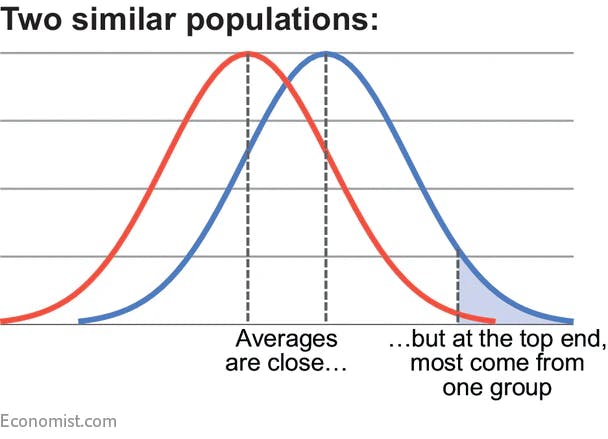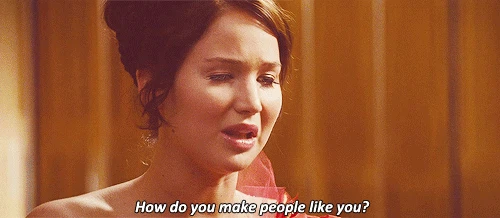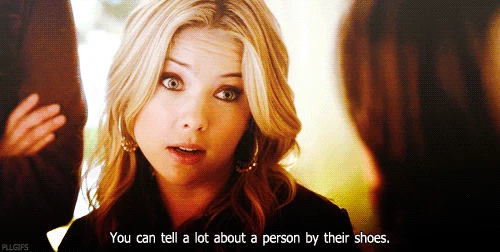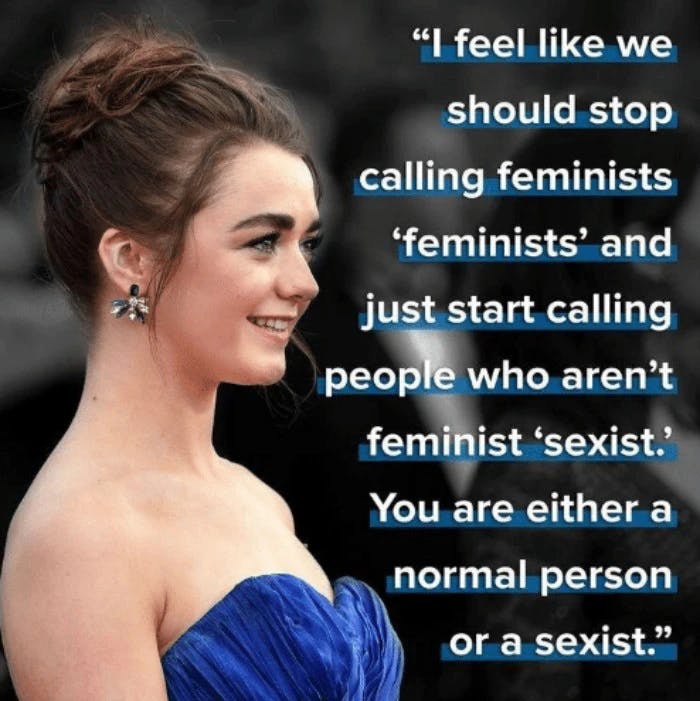Women’s Natural Drive To Be Liked Is Being Used Against Them
No one likes to be emotionally manipulated, but it’s been happening to women for so long, most of us don’t even realize it anymore.

Historically, as women, our primary biological drive was to mate and have babies. But in recent decades, this drive has been stymied by the popularization and normalization of birth control, hookup culture, and radical feminism.
Agreeableness — The Desire To Be Liked
So women are left to exercise their remaining socially acceptable drives, like our desire to be liked. The desire to be liked is also known as the “agreeable” personality trait. The agreeable trait is made up of compassion (you feel what others are feeling and react in a caring manner, you care about their problems and wellbeing) and politeness (you respect authority and social conventions, let others lead, avoid imposing your will). It also leads to caretaking behavior and being more cooperative than competitive. Everyone has agreeableness to some degree.
Agreeableness is made up of compassion and politeness.
According to Dr. Jordan Peterson, people who are high in agreeableness “really like to be liked. It’s their primary motivator because they’re concerned about the maintenance of intimate, positive relationships. That also makes them conflict avoidant.” Furthermore, they “are often so agreeable that they don’t even know what they want. Because they’re so accustomed to living for other people and to finding out what other people want and trying to make them comfortable and so forth that it’s harder for them to find a sense of their own desires as they move through life.”
While both men and women are able to be agreeable to the same degree, it’s also true that all the most agreeable people are women and all the most disagreeable people are men. In fact, women are more agreeable than men about 60% of the time.

Why is this significant? Well, agreeableness makes women vulnerable. Agreeableness is a trait that depends on feedback from others, which means women can be manipulated through that feedback.
How Do We Know We’re Liked?
What does being liked actually mean? If someone indicates they like you, that translates into an affirmation of your value and boosts your sense of self-worth. Being liked means that you fit into your family, your community, your society, which indicates that you’re safe. You’re accepted in civilization and granted the safety that comes with that.

How do we know that we’re liked or doing the right kinds of things to be liked? We use the feedback we receive from others to measure our “liked status” and to modify our behavior. If you put on cute shoes to go to the grocery store, and another woman compliments you on your shoes, you’re much more likely to wear those shoes again because you received positive feedback (rather than if she had called your shoes ugly). Someone liked your shoes, which we hear as someone approved of ME.

Don’t believe me? Pay another woman a sincere compliment about her appearance the next time you’re out, and watch her face light up. That wouldn’t happen if you complimented her on her car.

This pattern holds true for social media too. If you post a picture of yourself with your PSL in a pumpkin patch and you get a ton of “likes” (literally a measure of how much you’re liked), then you’re much more likely to post something similar in the future because you can reasonably predict more positive feedback. Our brain interprets these digital likes as approval that we’re doing the correct behaviors to be liked and accepted by our community, thus ensuring our survival (on a biological level).
Where We Look To Find Out How To Be Liked
What if we don’t know what to do to be liked? Well, we look to what’s trending. If our friends are all buying graphic tees, we’re much more likely to buy them too. If the celebrities we follow are promoting a certain product, we’re much more likely to buy it. And this is how businesses use marketing to their advantage — to tell women, through their advertisements, this is what you have to do/be/buy to be liked. Buy this dress or this mascara to be liked, which our biological brain reads: to continue to be accepted in the group, where it’s safe and your chances of dying are much lower.
This kind of marketing abuses women's biological drive to be liked. The companies make money off women’s innate insecurities. Strictly speaking, it’s psychological and emotional manipulation.
Cultural movements exploit the drive to be liked to gain and keep supporters.
Dr. Peterson argues that “agreeable people have a proclivity to divide the world into defenseless infants and predatory oppressors, and that’s projected onto the political landscape.” I think this makes sense if you look at the major cultural movements today.
Radical feminism has exploited our agreeableness and our overwhelming desire to belong in the group in order to get women to give up our natural biological urges. “Real women have jobs, not babies.” “If you really care about women, then you will fight for access to abortion and to tear down the patriarchy.”

The compassion aspect of agreeableness can also be manipulated to make us concerned about the needs of others above all else and buy into things like Marxism, Socialism, and Communism, as well as be motivated to perpetuate and/or expand the welfare system.
Closing Thoughts
Agreeableness is an important human trait — we couldn’t have a functioning society without it. But we women need to be aware of when our natural desires to be liked and to fit in are being manipulated in subtle ways. In reality, it isn’t as obvious as Mean Girls.